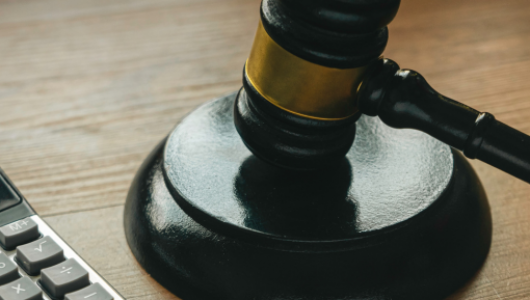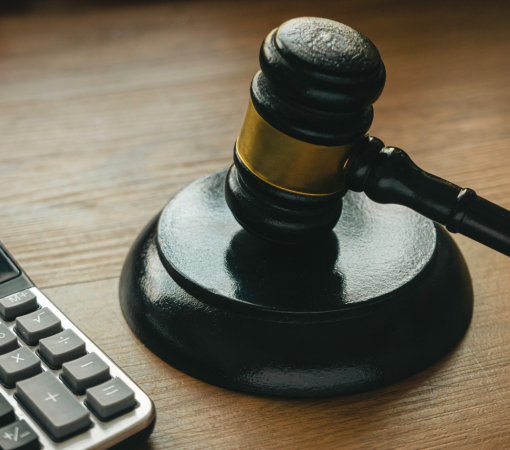Have you been charged with Common Assault?
- Over 30 years experience in the criminal justice system
- Track record of success
- Nationally acclaimed expertise
Free Legal Advice 24/7
-
Aggravated Assault
-
Wilful Damage
-
Common Assault
-
Public Display of a Nazi Symbol or the Nazi Salute
-
Harassing a Witness
-
Recklessly Causing Serious Injury In Circumstances Of Gross Violence
-
Affray Charges In Victoria
-
Intentionally Causing Serious Injury in Circumstances of Gross Violence
-
Intentionally causing Serious Injury
-
Recklessly Causing Serious Injury
-
Intentionally Causing Injury
-
Administering Certain Substances
-
Threats to Kill and Assault Offences
-
Stalking
-
Negligently Causing Serious Injury
-
Extortion With Threat to Kill
-
Extortion, With Threats to Destroy and/or Endanger Property
-
Threatening to Prevent Arrest
-
Using a Firearm in the Commission of an Offence
-
Being Armed with Criminal Intent
-
Kidnapping
-
Robbery
-
Armed Robbery
-
Aggravated Burglary
-
Home Invasion
-
Aggravated Home Invasion
-
Arson
-
Criminal Damage
-
False Imprisonment
-
Public Nuisance
-
Riot
-
Rout Offence
-
Unlawful Assembly
-
Intentionally Causing a Very Serious Disease
-
Carjacking
-
Aggravated Carjacking
What is Common Assault?
Common assault is a summary offence under Victorian law, and it differs from more serious types of assault, such as those causing injury or involving weapons. Common assault occurs when a person unlawfully assaults or beats another person, without the need for severe harm or injury to have occurred.
It is important to note that common assault is often confused with common law assault, but they are distinct terms. Common assault is an offence under section 23 of the Summary Offences Act 1966 (“SOA”), whereas common law assault refers to an offence defined purely by case law and precedent.
Common assault is defined as any situation where a person unlawfully assaults or beats another person. It does not require serious injury, and the act can include not only physical force but also the mere threat of violence if it causes the victim to apprehend immediate and unlawful harm.
Examples of Common Assault
Common assault can cover a broad range of actions and behaviours, and some everyday examples include:
- Pushing a person during a heated argument without causing injury.
- Slapping someone in the face without their consent, even if no visible marks are left.
- Threatening to punch someone while raising a fist, causing them to fear immediate harm.
- Grabbing another person’s clothing in an aggressive manner.
Police Interview
If you have been accused or charged with common assault, you may be called in for a formal police interview. This is an important part of the legal process, as the police will have gathered evidence and will use the interview to further their investigation.
Before attending the interview, you have the right to contact a lawyer for advice and/or representation. It is crucial to seek legal representation at this stage to ensure you understand your rights and obligations, and to avoid making statements that could harm your defence later in court.
Questions to Consider Before Pleading Guilty or Not Guilty
If you are facing a common assault charge, it is important to carefully consider your legal options. Key questions to ask yourself include:
- Did the assault occur as alleged?
- Did the assault involve the use of force, or was it merely a threat?
- Was the use of force intentional or reckless?
- Was there a lawful excuse or justification for the assault?
- Should I plead guilty or not guilty based on the circumstances?
- What options are available to minimise my penalty?
- Can I rely on any legal defences, such as self-defence or mistaken identity?
Elements of the Offence
For a common assault charge to be proven, the prosecution must establish the following elements beyond reasonable doubt:
- You assaulted another person without their consent.
- You either intended to apply force or were reckless about whether their actions would cause the victim to fear immediate harm.
- There was no lawful reason for your actions, such as self-defence.
Defences to Common Assault
If you are pleading not guilty to a common assault charge, possible defences include:
- Denial: You did not commit the assault as alleged.
- Self-defence: The assault occurred because you needed to defend yourself or another person.
- Duress: You were forced into committing the assault under threat of harm.
- Necessity: The assault occurred due to an emergency where immediate action was required.
- Alibi: Evidence shows you were not at the scene of the assault when it occurred.
- Mistaken Identity: Witnesses incorrectly identified you as the person involved in the assault.
Every case is unique, and legal advice is essential to determine which defence is most appropriate for your situation.
Penalties for Common Assault

If you are found guilty of common assault, the penalties are set out in the SOA The possible penalties include:
- Up to 3 months imprisionment for a standard common assault charge.
- Up to 15 penalty units (approximately $2,331.90 AUD).
- If the victim is a male child under 14 years of age or a female, and the assault is of an aggravated nature, the penalty increases to 6 months’ imprisonment or a fine of 25 penalty units.
It’s important to note that while common assault is considered a less serious offence compared to indictable assault charges, a conviction can still have serious consequences, including a criminal record.

Where Will My Matter Be Heard?
Common assault cases are typically heard in the Magistrates’ Court of Victoria. However, if the case involves more serious elements or if it is combined with other charges, the matter may be transferred to the County Court.
-
Aggravated Assault
-
Wilful Damage
-
Common Assault
-
Public Display of a Nazi Symbol or the Nazi Salute
-
Harassing a Witness
-
Recklessly Causing Serious Injury In Circumstances Of Gross Violence
-
Affray Charges In Victoria
-
Intentionally Causing Serious Injury in Circumstances of Gross Violence
-
Intentionally causing Serious Injury
-
Recklessly Causing Serious Injury
-
Intentionally Causing Injury
-
Administering Certain Substances
-
Threats to Kill and Assault Offences
-
Stalking
-
Negligently Causing Serious Injury
-
Extortion With Threat to Kill
-
Extortion, With Threats to Destroy and/or Endanger Property
-
Threatening to Prevent Arrest
-
Using a Firearm in the Commission of an Offence
-
Being Armed with Criminal Intent
-
Kidnapping
-
Robbery
-
Armed Robbery
-
Aggravated Burglary
-
Home Invasion
-
Aggravated Home Invasion
-
Arson
-
Criminal Damage
-
False Imprisonment
-
Public Nuisance
-
Riot
-
Rout Offence
-
Unlawful Assembly
-
Intentionally Causing a Very Serious Disease
-
Carjacking
-
Aggravated Carjacking
Testimonials
What people Say
St Kilda, Victoria 3182
1800 130 120
-
I found myself again before the magistrates court for an indictable offence, I was worried about receiving a jail sentence because of my age and h... Read MoreI found myself again before the magistrates court for an indictable offence, I was worried about receiving a jail sentence because of my age and history, but once I spoke to Jasmin Dhillon and the MK Law team, all my worries were taken away! Jasmin took the time to explain to me the process and kept me informed every step of the way, she has a deep understanding of the law and a genuine heartfelt commitment to achieving the best possible outcome for her clients. Thanks to her hard work and expertise, we achieved a no conviction outcome which has enabled me to continue working hard and pursue my dream career! I am forever grateful for their service and would highly recommend the MK Law team to anyone in need of legal assistance, they are truly dedicated and one of a kind in their field. Read Less55/5
-
Thanks Marcus Denning for being with me from start to end and to give me a fantastic outcome from my trial..👏👏👏🎖🎖🎖🎖🎖🎖Fi... Read MoreThanks Marcus Denning for being with me from start to end and to give me a fantastic outcome from my trial..👏👏👏🎖🎖🎖🎖🎖🎖First time getting charged, didn't know what to do. I was like a fish out of water. Started to research some law firms and mk law popped did some background checks and found good info about the firm. So I stuck with them and i don't regret nothing about my experience with mk law..... Read Less55/5
-
Professional. Transparent. Experienced. Marcus Denning left no stone unturned, sealing a complete win at trial. Our experience at MK LAW was beyon... Read MoreProfessional. Transparent. Experienced. Marcus Denning left no stone unturned, sealing a complete win at trial. Our experience at MK LAW was beyond exceptional. Read Less55/5
-
I recently used the services of Marie Lukic of MK law. She is very professional, dedicated and knowledgeable lawyer. Extremely grateful to have Ma... Read MoreI recently used the services of Marie Lukic of MK law. She is very professional, dedicated and knowledgeable lawyer. Extremely grateful to have Marie who did exceptional job. I would highly recommend Marie Lukic of MK law firm. 👍 Read Less55/5
What to Do Next?
If you have been charged with common assault, it is critical to seek legal advice as soon as possible. A lawyer can help you understand your rights, the potential outcomes of your case, and the best strategy to minimise the impact of the charges.
Don’t delay in preparing your defence. Early legal advice can be the key to a successful outcome. Ring MK Law on 1800 130 120 for expert advice and representation.
Free Legal Advice 24/7
Contact Us
Call Anytime For Free Legal Advice 24/7
Top 5 firms by reputation dealing with traffic and criminal law matters.
- 2/212 Barkly Street, St Kilda Victoria, 3182 Australia
- 1800 130 120
- marcus@mklawfirm.com.au